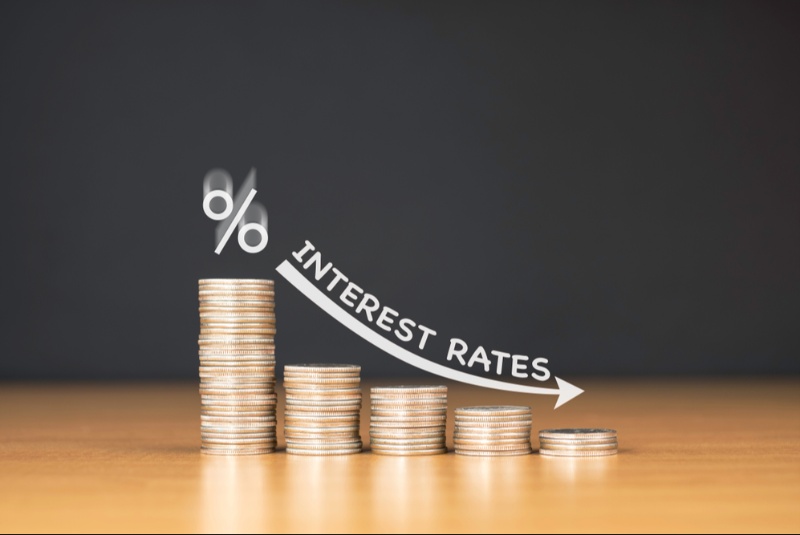Managing debt can be challenging, but developing a plan to pay off loans faster can alleviate financial stress and help you achieve financial freedom. By employing various debt reduction strategies, you can reduce the total amount of interest paid and shorten the time it takes to become debt-free. This comprehensive guide provides practical tips and methods to help you pay off your loans faster and take control of your financial future.
Assess Your Financial Situation
The first step in debt reduction is assessing your current financial situation. List all your debts, including the amount owed, interest rates, minimum monthly payments, and due dates. Understanding the full scope of your debt helps you prioritize which loans to tackle first and develop a clear repayment strategy. Assessing your financial situation provides a foundation for effective debt management, ensuring you make informed decisions and set realistic goals for paying off your loans.
Create a Budget
Creating a budget is essential for managing your finances and allocating funds toward debt repayment. Track your income and expenses to identify areas where you can cut back and redirect money towards paying off your loans. Include categories for essential expenses, discretionary spending, and debt payments. A well-structured budget ensures you have a clear plan for managing your money and can consistently allocate funds to reduce your debt. Budgeting helps you stay on track with your financial goals and makes debt reduction more achievable.
Use the Debt Snowball Method
The debt snowball method involves paying off your smallest debts first while making minimum payments on larger debts. Once the smallest debt is paid off, apply the amount you were paying on it to the next smallest debt, creating a snowball effect. This method provides a psychological boost by allowing you to see progress quickly and stay motivated. The debt snowball method helps you build momentum and systematically eliminate your debts, leading to faster repayment and increased financial confidence.
Use the Debt Avalanche Method
The debt avalanche method focuses on paying off debts with the highest interest rates first, while making minimum payments on others. This approach minimizes the amount of interest paid over time and accelerates debt reduction. Once the highest-interest debt is paid off, move on to the next highest, continuing the process until all debts are eliminated. The debt avalanche method is financially efficient, reducing the overall cost of debt repayment and helping you pay off loans faster.
Make Extra Payments
Making extra payments whenever possible can significantly reduce the time it takes to pay off your loans. Apply any windfalls, such as tax refunds, bonuses, or gifts, directly to your debt. Additionally, consider making bi-weekly payments instead of monthly, effectively making an extra payment each year. Extra payments reduce the principal balance faster, lowering the amount of interest accrued and shortening the repayment period. Making extra payments accelerates debt reduction and helps you achieve financial freedom sooner.
Consolidate Your Debt
Debt consolidation involves combining multiple debts into a single loan with a lower interest rate. This can simplify repayment and reduce the total interest paid. Consider a personal loan, balance transfer credit card, or a home equity loan for consolidation. Ensure the new loan has favorable terms and a lower interest rate than your current debts. Debt consolidation streamlines your payments and can make debt management more manageable, allowing you to pay off loans faster.
Negotiate Lower Interest Rates
Negotiating lower interest rates with your creditors can reduce the overall cost of your debt and help you pay off loans faster. Contact your lenders and request a lower rate, especially if you have a good payment history or improved credit score. Many creditors are willing to work with you to retain your business. Lower interest rates decrease the amount of interest accrued, making it easier to reduce your principal balance and achieve debt freedom more quickly.

Reduce Unnecessary Expenses
Cutting back on unnecessary expenses frees up more money for debt repayment. Review your budget and identify areas where you can reduce spending, such as dining out, entertainment, or subscription services. Redirect the savings towards paying off your loans. Even small adjustments can add up over time, accelerating your debt reduction efforts. Reducing unnecessary expenses ensures you allocate more funds towards your financial goals, making debt repayment faster and more effective.
Increase Your Income
Increasing your income provides additional funds for debt repayment. Consider taking on a part-time job, freelance work, or side hustle to generate extra money. Use the additional income exclusively for paying off your loans. Additionally, seek opportunities for raises or promotions at your current job. Increasing your income enhances your ability to make larger payments towards your debt, accelerating the repayment process and helping you achieve financial stability sooner.
Automate Your Payments
Automating your debt payments ensures consistency and helps you avoid missed payments, which can result in late fees and higher interest rates. Set up automatic transfers from your checking account to your loan accounts on or before the due dates. Automation also reduces the stress of managing multiple payments and ensures you stay on track with your repayment plan. Automating your payments streamlines the debt reduction process, making it easier to stay committed and pay off loans faster.
Seek Professional Advice
If managing your debt feels overwhelming, seek advice from a financial advisor or credit counselor. These professionals can help you create a personalized debt repayment plan, negotiate with creditors, and provide strategies for improving your financial situation. Many non-profit organizations offer free or low-cost credit counseling services. Seeking professional advice ensures you have expert guidance and support, enhancing your ability to reduce debt effectively and achieve financial freedom.
Stay Motivated and Focused
Staying motivated and focused is crucial for successfully reducing debt. Set clear, achievable goals and celebrate milestones along the way. Keep track of your progress and remind yourself of the benefits of becoming debt-free. Consider joining support groups or online communities for encouragement and accountability. Staying motivated and focused helps you maintain discipline and commitment to your debt repayment plan, ensuring you stay on track and achieve your financial goals.
Avoid Accumulating New Debt
To effectively reduce your existing debt, it’s important to avoid accumulating new debt. Resist the temptation to use credit cards or take out new loans while you’re working on paying off your current obligations. Create an emergency fund to cover unexpected expenses and avoid relying on credit. Avoiding new debt ensures your efforts are directed towards reducing your existing balance, helping you achieve debt freedom more quickly.
Regularly Review Your Progress
Regularly reviewing your progress keeps you informed and motivated. Monitor your debt balances, payments, and any changes in interest rates. Adjust your repayment strategy as needed to stay on track with your goals. Regular reviews help you identify any issues early and make necessary adjustments to your plan. Regularly reviewing your progress ensures you stay on top of your debt reduction efforts and continue making strides towards financial freedom.
Reducing your debt and paying off loans faster requires a combination of strategic planning, disciplined budgeting, and consistent effort. By assessing your financial situation, creating a budget, and using methods like the debt snowball and debt avalanche, you can effectively tackle your debt. Making extra payments, consolidating debt, and negotiating lower interest rates further accelerate the process. Reducing expenses, increasing income, and automating payments enhance your ability to stay committed to your repayment plan. Seek professional advice if needed, stay motivated, avoid new debt, and regularly review your progress to achieve your financial goals. Implement these strategies to reduce your debt and enjoy the benefits of financial freedom.




